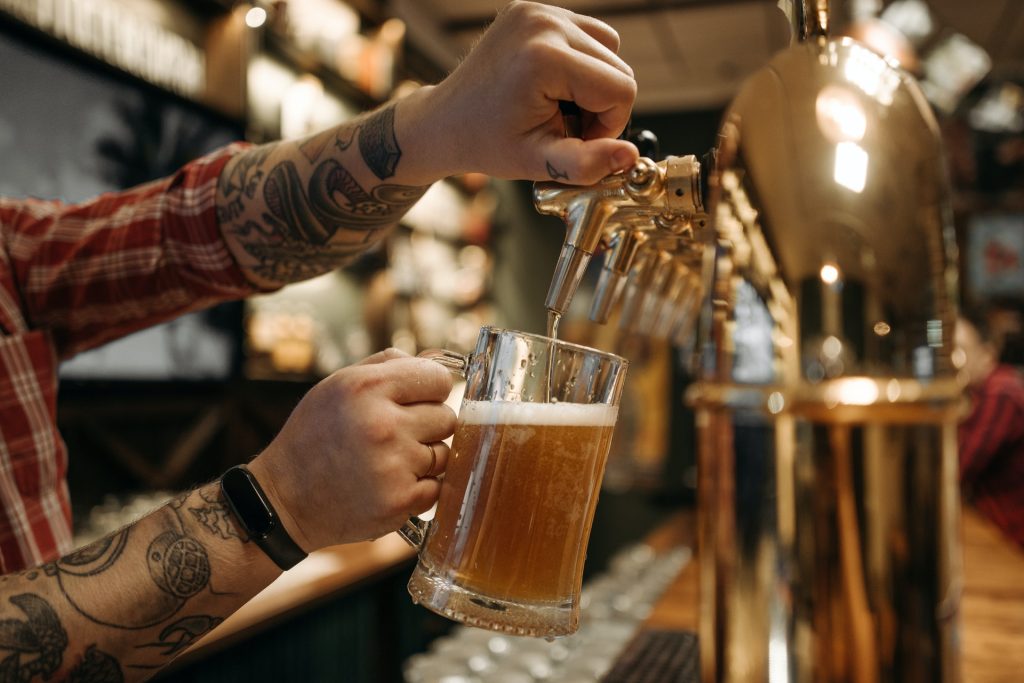
The negative effects of beer on health have long been studied, but a new research suggests that beer – both alcoholic and nonalcoholic – has a positive impact on gut health. A lucky group of adult male volunteers drank moderate amounts of beer daily for a month, and the findings on their gut health biomarkers were published in the Journal of Agricultural and Food Chemistry.
Gut microbiota modulation might constitute a mechanism mediating the effects of beer on health. However, intestinal microorganisms can use compounds present in beer. Previous work has found beneficial effects on intestinal from moderate beer drinking, mostly from butyric acid and gut bacteria changes.
In this randomised, double-blinded, two-arm parallel trial, 22 healthy men were recruited to drink 330 mL of nonalcoholic beer (0.0% v/v) or alcoholic beer (5.2% v/v) daily during a 4-week follow-up period. Blood and faecal samples were collected before and after the intervention period. To measure diversity, gut microbiota were gene sequenced to identify strains.
Drinking nonalcoholic or alcoholic beer daily for 4 weeks did not increase body weight and body fat mass, an encouraging sign. The nonalcoholic beer had 26kcal of energy and 5.9g of carbohydrates per 100mL, but the alcoholic beer had more energy (38.5kcal/100mL) despite having fewer carbohydrates (2.8g/100mL). The researchers also found no significant effect on serum cardiometabolic biomarkers.
Both types of beer increased gut microbiota diversity, something which has been associated with positive health outcomes and tended to increase faecal alkaline phosphatase (ALP) activity, a marker of intestinal barrier function.
The increase in gut microbiota may be down to phenolic compounds in the beer, chiefly from the yeast, and other types of beer besides the Lager used may have higher levels of these beneficial compounds. This benefit appears to outperform the negative effect alcohol
These results suggest the effects of beer on gut microbiota modulation are independent of alcohol and may be mediated by beer polyphenols.

